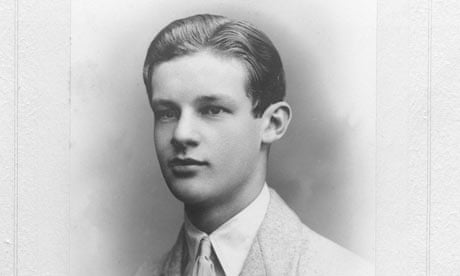James Lees-Milne was visited on his deathbed by Prince Charles and found it "rather a strain". He had fallen ill while paying his annual visit to the Paris home of Oswald Mosley's widow, Diana, with her sister, the Duchess of Devonshire. He travelled there by Eurostar. This is all reported in the final paragraph of Michael Bloch's affectionate and respectful biography of Lees-Milne, a man employed for many years by the National Trust, but whose lasting reputation is likely to be founded on the seven volumes of waspish and elegant diaries published in his lifetime and five more brought out posthumously under the eye of Bloch, who is his literary executor as well as biographer.
These diaries present a problem for Bloch and one which, for all this book's successes, he never escapes. They are so readable and gossipy that the task of his biographer is a fairly thankless one. What is more, Bloch has been responsible for some excellent editing of the diaries, so their footnotes and introductions provide satisfactory background information on the people mentioned and how they came into contact with Lees-Milne.
None the less, as this biography's last paragraph suggests, Lees-Milne's story is an intriguing one. Who was this man, an arch-snob with connections with the Mosleys? Or an amusing iconoclast, refreshingly unimpressed by the ministrations of the heir to the throne? His life spanned the century from an Edwardian childhood to the era of trains under the Channel and the ascent of New Labour (he died in 1997), during which he managed to be an academic failure and an Oxford undergraduate; desperate for money and comfortably rich; sometimes homosexual and married to an occasional lesbian. He seems the quintessential Englishman of his class and generation and yet spent eight years living in the south of France.
Bloch addresses these contradictions and does not shy away from engaging with the less savoury episodes in the life of his old friend. "It appears," he writes at the end of chapter one, "that Jim did have sexual intercourse with his cousin..." Some weeks later, she was found to be pregnant and the child was stillborn. "He felt that he had forfeited all further right to father a child." Bloch's recounting of this story is definitely partisan: cousin Joanie "was evidently fairly free with her sexual favours," he tells us, so "there can be no certainty that the child was Jim's".
It isn't all like this. Bloch is careful to treat Lees-Milne's partial autobiography, Another Self, with scepticism. Is it true, for example, that his interest in saving the great country houses of Britain, an enterprise which, through the National Trust, took up much of his working life, dated from a rowdy student house party, when some moronic toffs used a rifle to take pot shots at the genitalia of priceless statues and used a riding crop to whip the paint off portraits by Kneller and Reynolds? It is a great story, which serves to portray Lees-Milne as an outsider in a winning way. But Bloch asks whether he was there at all, pointing out that eyewitnesses don't recall seeing him.
Relations between Bloch and Lees-Milne's wife, Alvilde, were not always warm and it is to the biographer's credit that she comes out of this book as a tolerant and sensible character. But James Lees-Milne, for all the grand friends, does not come across as a very happy man. He might have saved for the nation, by persuading their owners to hand them over to the National Trust, some architectural gems and he might have produced some well-written books, but he felt himself a failure, not least morally. His biographer, meanwhile, does not stop far short of hero worship. While this makes his mastery of the facts of Lees-Milne's life impressive, you end up feeling that you are being asked for sympathy rather than empathy and that's quite a lot for a biographer to seek.
